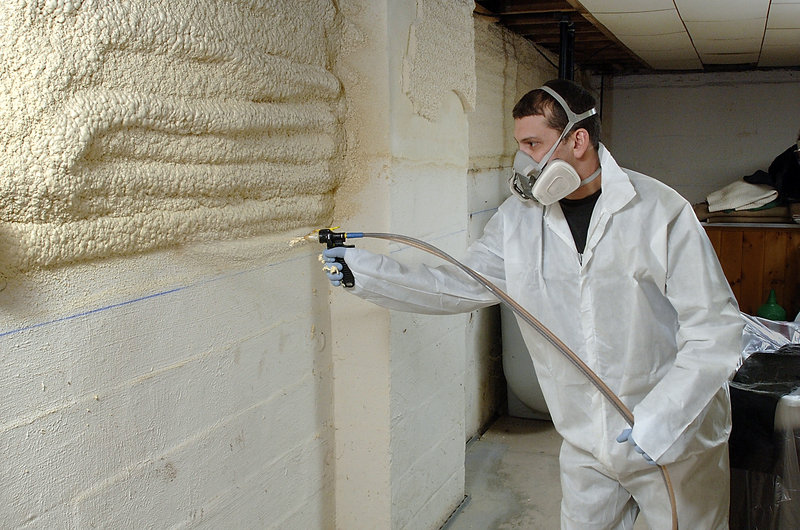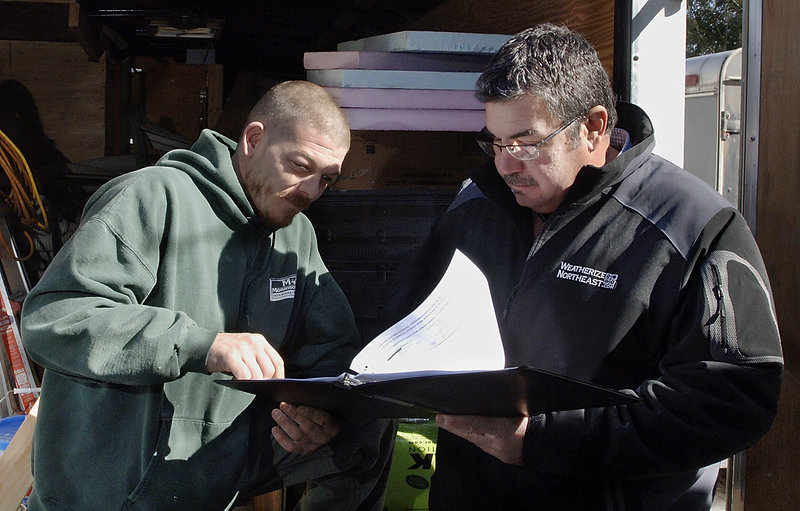Word of Chevrolet’s impending deal with a state agency to make Maine’s low-income housing stock more energy-efficient raised some questions last month.
Chevrolet had signed an agreement with the Maine State Housing Authority, also known as MaineHousing, that would result in just under $1 million of weatherization work at low-income homes in Maine. The deal will cover weatherization work at about 170 housing units.
Why would General Motors and Chevy, more commonly associated with gas guzzlers than green initiatives, want to help Mainers with their home heating bills?
The answer is part marketing, good timing and innovation at a state agency dating back to 2008.
Always scrambling for funds for weatherization, Dale McCormick, agency director, got the idea of trying to make money by selling carbon offsets for the reductions in carbon emissions the agency was attaining through insulating, weather-stripping and caulking homes.
“The reason we started this was to get more money to weatherize more homes of low-income people,” McCormick said.
Carbon offsets put a price on the reductions in greenhouse gas emissions, which are sold to power plants and other entities to compensate for their emissions.
The Regional Greenhouse Gas Initiative operates the first mandatory carbon offset program in the United States. The 10 participating states, including Maine, set a regional cap on the amount of carbon dioxide that may be emitted by power plants by issuing a limited amount of tradeable carbon dioxide allowances.
It then auctions off the allowances and the states use the proceeds to fund energy efficiency projects. Maine has earned $23.5 million through the initiative since it started in 2008.
There is also a voluntary carbon offset market, which MaineHousing intended to enter, that sells carbon offsets to people, companies and other entities seeking to mitigate their own carbon emissions, such as from travel and electrical use.
But first the agency had to develop a methodology to measure, monitor and report on the carbon dioxide and have it certified by a credible third party. While it is fairly easy to figure out the carbon dioxide emitted by a power plant, it is not so easy when it comes to a typical Maine house. “It had not been tackled before,” McCormick said.
It was a three-year effort involving multiple evaluations and independent audits. In December, the methodology was finally approved by the Voluntary Carbon Standard, a widely used carbon accounting standard.
David Antonioli, chief executive officer of the Voluntary Carbon Standard, called MaineHousing’s work a breakthrough because it paves the way for similar agencies to sell their carbon offsets.
The approval came just in time to get the attention of Chevrolet, which was looking to buy carbon offsets as part of a major public relations push. “We were looking for ways to get folks to view Chevrolet differently,” said Bill Devine, cross brand marketing manager at Chevy.
Chevrolet, the largest brand at General Motors, is positioning itself as GM’s most environmentally-friendly brand. It recently introduced its electrical hybrid, the Volt, complementing its line of fuel-efficient Cruze cars.
Chevrolet decided to invest $40 million on carbon offsets in the next three to five years to promote fuel efficiency in buildings, and solar, wind and wood energy projects. Its goal of reducing carbon emissions by 8 million metric tons nationwide is based on the emissions from the 1.9 million vehicles it expects to sell in the United States in 2011.
Finding proven carbon offsets for alternative energy projects is easy, but that is not the case for buildings. So when Chevrolet officials heard about the MaineHousing program, they moved quickly to get an agreement to buy the authority’s offsets, based on weatherization work at 5,500 housing units. Details are still being worked out but should be complete within the year. “We were actually very excited,” Devine said.
The Maine weatherization effort was the first project unveiled under Chevrolet’s carbon reduction program, which is looking to make similar investments in all 50 states.
McCormick said the deal will help the state take a big step toward its goal of making all its 476,729 single-family dwellings energy-efficient by 2030, which would save consumers an estimated $7.5 billion.
Progress toward that goal got a boost in 2009 and 2010, thanks to the federal economic stimulus, when Maine received an infusion of $6 million for home weatherization. MaineHousing used it to insulate 4,427 homes. But with that money now used up, the authority has enough to do about 230 housing units this year. The Chevrolet deal will pay off next year, McCormick said.
McCormick said the agency’s carbon offsets command high prices because of their associated economic benefits, called “multiplier effects” in the world of carbon offsets. The money saved by low-income families on fuel bills will be spent on other purchases, which will stimulate the economy as well. “When we talked about our carbon offsets at conferences, people were drooling over our multiplier effect,” said McCormick.
Staff Writer Beth Quimby can be contacted at 791-6363 or at: bquimby@pressherald.com
Send questions/comments to the editors.





Success. Please wait for the page to reload. If the page does not reload within 5 seconds, please refresh the page.
Enter your email and password to access comments.
Hi, to comment on stories you must . This profile is in addition to your subscription and website login.
Already have a commenting profile? .
Invalid username/password.
Please check your email to confirm and complete your registration.
Only subscribers are eligible to post comments. Please subscribe or login first for digital access. Here’s why.
Use the form below to reset your password. When you've submitted your account email, we will send an email with a reset code.